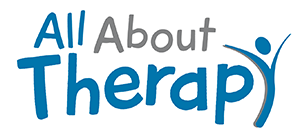When you think of theatre kids, you probably envision bubbly, outgoing types with great singing and dancing abilities. And if you are the parent of a child or teen with an intellectual disability such as Autism, you might assume that theatre involvement would not be a good fit for your kid. Surprisingly, kids with special needs can learn new skills and grow in their appreciation for the arts by participating in a theatre group.
There are two ways to get your child involved in theatre. Which you choose will depend on your child’s age and level of functioning. If your child’s school has a theatre elective and your child is eligible to attend, this is the easiest way to give theatre a try. In a school-based class, the focus is usually on producing a show. For younger kids and kids who are more severely affected, a Drama Therapy program may be the way to go. Each participant is paired with a therapist or theatre student (usually from a local university) and the exercises will be more guided to those with special challenges.
Of my four children, two have participated in theatre groups! My oldest child, Elizabeth, who does not have special needs, helped lead the Theatre Therapy Project at Appalachian State University in 2016-17. The stated goals of the project are to help participants gain skills in communication, creativity, spatial awareness, and social awareness. The program was extremely successful, and most participants wanted to return the following year! The dramatic gains (pun intended) were detailed in an article in The Journal of Speech Pathology and Therapy. Journal Article
My third child, a 12-year-old girl with autism, participated in a general ed theatre elective at her middle school. After working with the group for nearly a full school year, she was able to play a role in the ensemble for a full-length play! She formed new friendships and grew in confidence. Though it wasn’t always easy and she was definitely required to step out of her comfort zone, she is excited to participate again next school year.
Benefits:
- Learn communication strategies: kids in theatre exercises practice respectful dialogue with peers and learn how to speak in large groups. Since the dialogue is from a script, the participant can practice taking turns speaking without having to consider what to say.
- Learn to work in groups: producing a play or performance requires kids to develop group skills, which will be helpful in other classes and areas of life. Learning these skills is facilitated by the adult instructor.
- Learn to manage anxiety: many kids with autism experience anxiety regularly, and theatre exercises can teach coping skills, especially in unfamiliar settings.
- Increase ability to correctly recognize facial expressions: when working through a scripted scene, participants learn the correct facial expression for a situation.
- Increase ability to identify emotions: theatre participants will learn to express an emotion outwardly in an appropriate way.
- Learn problem solving skills: as a participant takes on the “role” of another person, he can learn new ways to work through real life situations. Playing a role gives a new perspective on how others think and act, thereby increasing “theory of mind” in a kid with an intellectual disability.
- Increase in happiness and life satisfaction: theatre participants reported feeling happy with their accomplishments at the conclusion of a program or class. Parents often noted a decrease in their child’s aggression.
Like all arts programs, theatre participation can change a child’s perspective on the world. We have had such a positive experience with theatre arts that I look forward to my kids participating again! I encourage you to consider a theatre program for your child with special needs.

